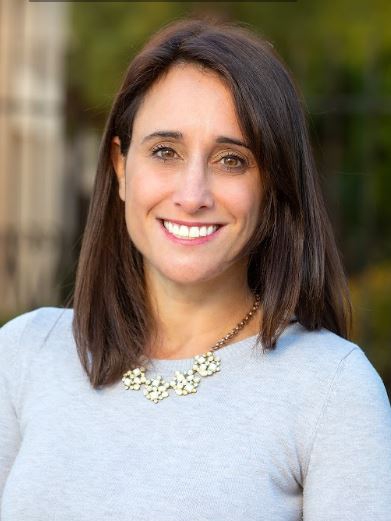
There’s no other way to put it – when a child experiences an asthma attack it is terrifying for the child and the parents.
Understandably, parents of an asthmatic child want to take the best precautions. But there are many myths about asthma that can lead to over-precautions that limit a child’s activities and do not contribute to stronger health.
Dr. Jamie Ruderfer, a pediatric pulmonologist at TMCOne, sets the record straight and explains how parents should take the appropriate precautions that build strong health because, as she says, “asthma shouldn’t keep a kid from being a kid.”
Are allergies and exercise the most common asthma triggers?
Actually, the most common trigger of pediatric asthma is the rhinovirus, or common cold. The flu is right behind the cold as a significant asthma trigger.
I strongly agree with the American Academy of Pediatrics that every child should receive a flu vaccine, and it is even more important for asthmatic children.
Does that mean allergies and exercise aren’t triggers?
Allergies and exercise can be serious triggers, they just aren’t the most common triggers of asthma-related difficulties.
Every child who experiences asthma will have unique triggers. Some will be triggered more by allergies or exercise. Some will be triggered more by viral colds. This is where proper expert advice on management comes in.
Before taking extreme precautions, an evaluation by a pediatric pulmonologist can determine your child’s unique experiences with asthma and create a management plan that fits your child’s needs and lifestyle.
Should parents take extra precautions to keep their child from getting a cold?
When it comes to colds, asthmatic children cannot realistically take different precautions than a child who does not have asthma.
Parents need to work, and children need to go to school and daycare. I’m a mom, too, and I understand that preventing a child from catching a cold is nearly impossible. We should still take precautions, but reasonable and effective ones – like a flu shot, hand washing/sanitizing, a healthy diet and good sleep.
If an asthmatic child catches a cold (which they will), it does not mean that an acute asthmatic episode is certain – it means that parents should be more alert for signs and symptoms. Again, management is key. Your child should have an individualized asthma action plan developed by their pediatrician or pediatric pulmonologist for when they get the sniffles.
Asthma symptoms only involve wheezing, right?
Wheezing (both breathing in and out) is a symptom, but there are other symptoms and signs that parents should be aware of.
Symptoms the child may have an escalating issue include:
- Chest tightness
- Chronic cough
- Respiratory infection
- Shortness of breath
- Waking in the night with breathing difficulty
Acute symptoms that require immediate treatment involve:
- Severe wheezing
- Rapid and/or labored breathing
- Coughing that doesn’t stop
- Pressure and pain in the neck and chest
- Difficulty talking due to shortness of breath
- Blue lips or fingernails
If your child is experiencing any of these acute symptoms, go to the nearest emergency department or call 911 immediately.
My child hasn’t had symptoms for a long time – so I don’t have to be as aware?
Children can go for long periods without asthma being triggered. Asthma is a serious condition and while parents don’t need to be overly cautious, they should regularly visit a health-care provider, stick to the asthma management plan and always be alert to symptoms.
I’m just so afraid of an asthma attack – should I just cut out sports entirely?
An asthma diagnosis should not keep a kid from being a kid. Having a solid, ongoing management plan will make it possible for your child to safely enjoy sports and other physical activity.
 Dr. Ruderfer graduated cum laude from the University of California, Irvine and Phi Beta Kappa with a B.S. in biological sciences with emphasis in cell biology. She received her medical degree from St. George’s University School of Medicine, and completed her 3-year residency in pediatrics at Winthrop University Hospital and a 3-year fellowship in pediatric pulmonary at Baylor College of Medicine/Texas Children’s Hospital. She is a member of the American Academy of Pediatrics, and she is married to Dr. Daniel Ruderfer (TMCOne pediatric infectious disease) and has two sons, Ethan and Josh.
Dr. Ruderfer graduated cum laude from the University of California, Irvine and Phi Beta Kappa with a B.S. in biological sciences with emphasis in cell biology. She received her medical degree from St. George’s University School of Medicine, and completed her 3-year residency in pediatrics at Winthrop University Hospital and a 3-year fellowship in pediatric pulmonary at Baylor College of Medicine/Texas Children’s Hospital. She is a member of the American Academy of Pediatrics, and she is married to Dr. Daniel Ruderfer (TMCOne pediatric infectious disease) and has two sons, Ethan and Josh.